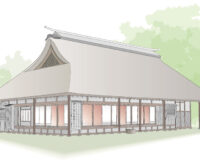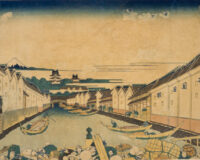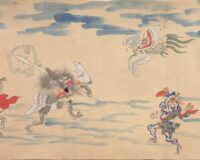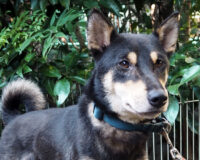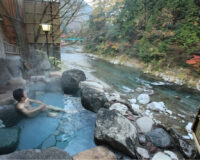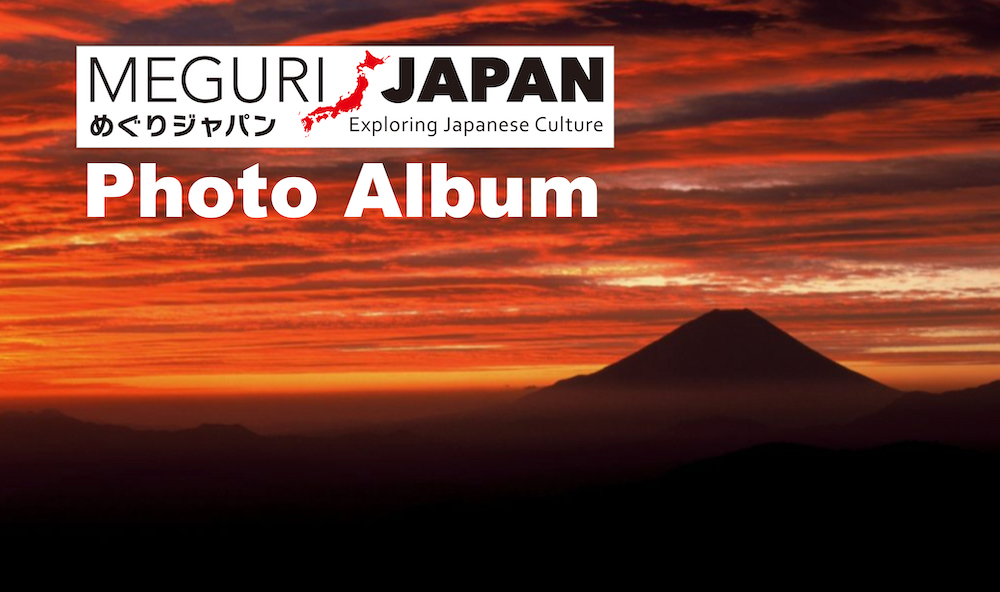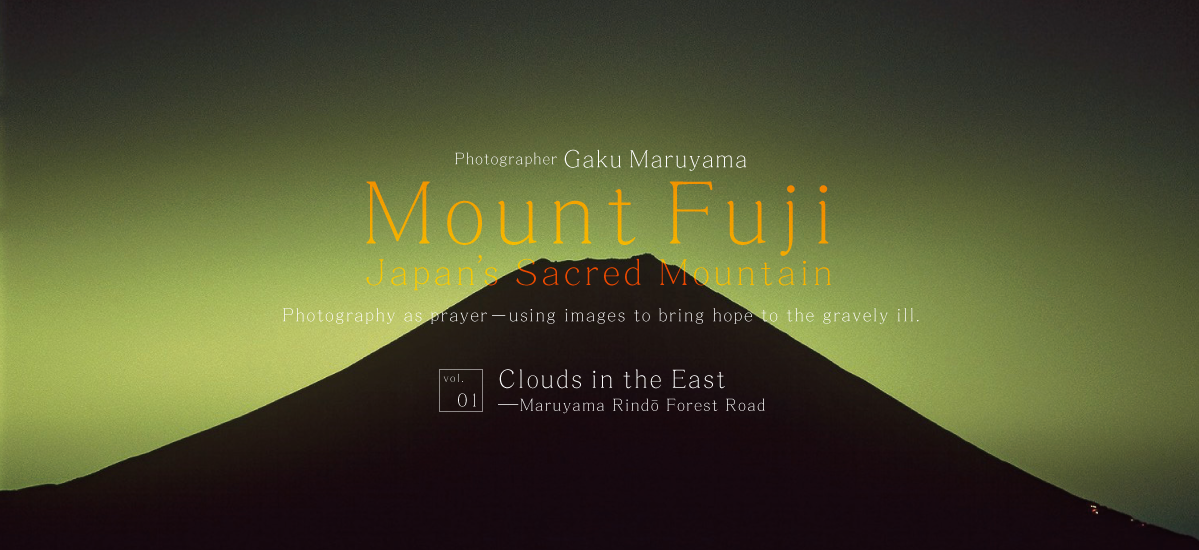
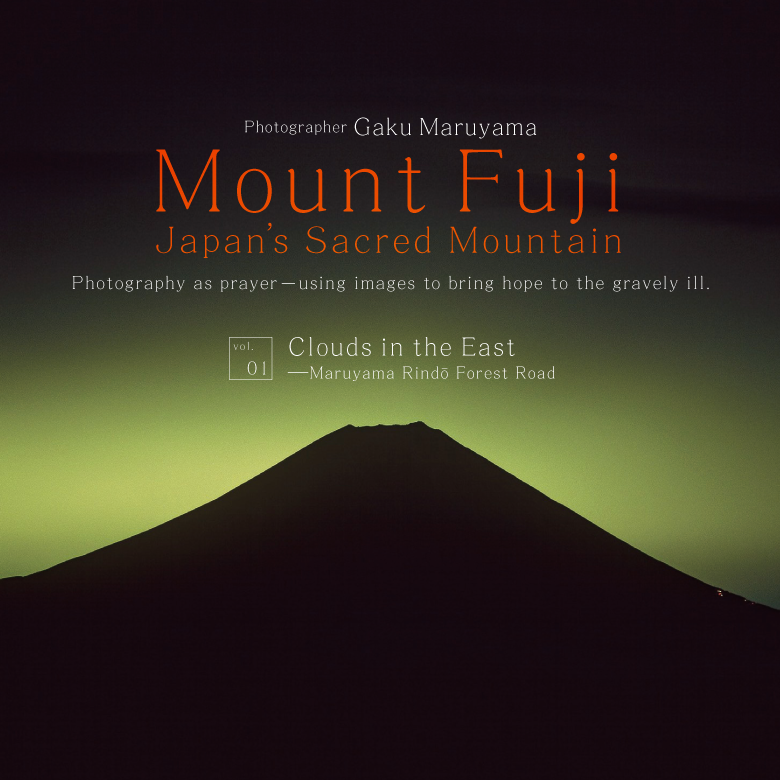
The morning fog behind me, I make it to Lake Motosu. A quick stop as always by the side of the lake to check on the weather. Thick clouds. Still one hour to go before I reach my destination.
Arriving at the lookout, I’m a little disappointed to see I’m the only one here.
Soon enough, in the faint light now appearing between layers of dark cloud, a familiar shape begins to take form. Mount Fuji. No reason yet to expect anything out of the ordinary, but this morning, I’m about to witness a scene few people ever see.
My hands shake as I fumble, trying to load the film. A minute seems like an eternity.
Looking up at this wondrous sight, I feel the very particles of my being melt into the universe, as if I too were just light and shadow.
Text and Photos : 岳 丸山 Gaku Maruyama / English Version : Judy Evans
Keyword : photography / Mount Fuji / Maruyama Rindō Forest Road / Mount Fuji Photography Series
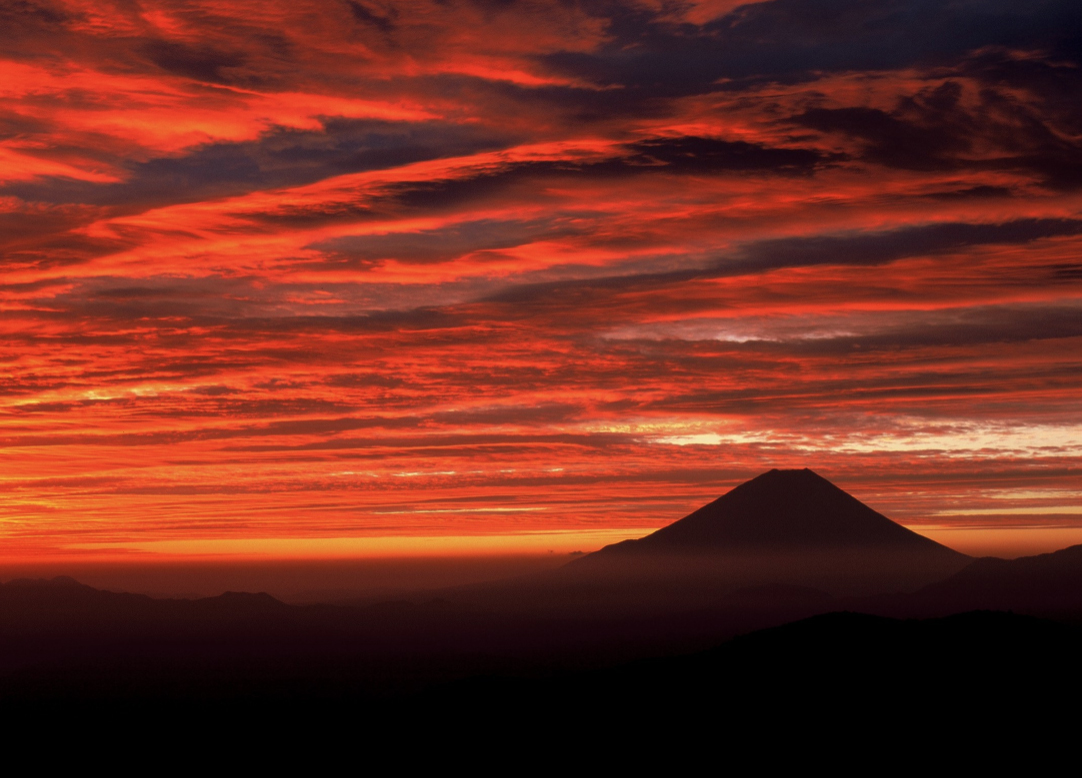
Capturing Mount Fuji
For the photographer trying to capture images of Mount Fuji, the most important personal qualities are imagination and the ability to visualise how images may appear, based on variables such as where and when the photographs are taken. For this, an understanding of the various phenomena that affect photography is also required – starting with atmospheric conditions, geography, the position of the earth, sun and moon, as well as the way the angle and wavelength of the light affect colours. This understanding can then fuel the photographer’s own powers of imagination. There is still an element of trial and error though, and even with all this knowledge, it takes a lot of photos to get a few good shots.

